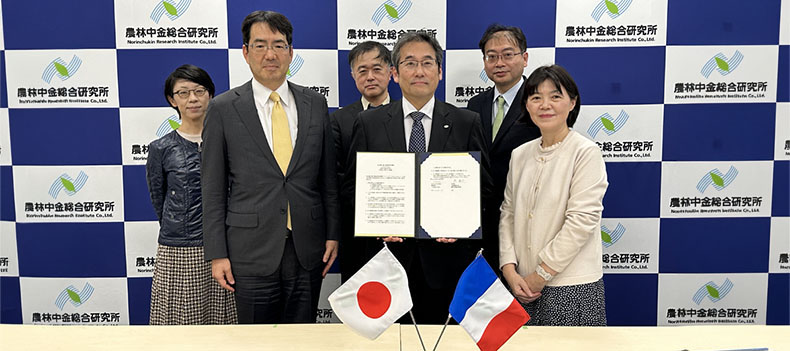Strengthened Collaboration with Norinchukin Research Institute in Japan
A promising MoU between the Agro Institute and Norinchukin Research Institute

L’Institut Agro and the Norinchukin Research Institute (NRI) have signed a Memorandum of Understanding to further develop their joint research efforts in agricultural economics and the role of agricultural cooperatives. The agreement was officially signed on December 2, 2024, marking a significant step in the long-standing collaboration between the two institutions.
Founded in 1923, Norinchukin Bank, the Japanese equivalent of Crédit Agricole in France, established the NRI in 1950 to conduct research on economic trends in agriculture, forestry, and fisheries. With over 80 researchers, NRI has built strong partnerships with universities and research institutes both in Japan and internationally.
L’Institut Agro and NRI have worked together on research projects for several years, particularly focusing on European agricultural cooperatives. These joint projects have included field visits, conferences, and exchanges of expertise, contributing to an in-depth understanding of the functioning and role of cooperatives in Europe. In 2018, a research trip to France, facilitated by Dr. Louis Antoine Saïsset, further strengthened the relationship between the two institutions, allowing them to explore collaboration opportunities.
Looking ahead, this partnership will focus on key areas such as sustainable agriculture, precision farming, and the environmental impact of the food system. Both institutions will work together to explore how agricultural cooperatives can contribute to reducing the environmental impact of the entire food supply chain, with a particular focus on smart agriculture, sustainability labels, and biodiversity.
This MoU is an important milestone in enhancing the exchange of knowledge and expertise between L’Institut Agro and Norinchukin Research Institute. It will help drive forward the shared objective of advancing sustainable agricultural practices and contributing to the transition towards a more responsible and environmentally friendly food system.
